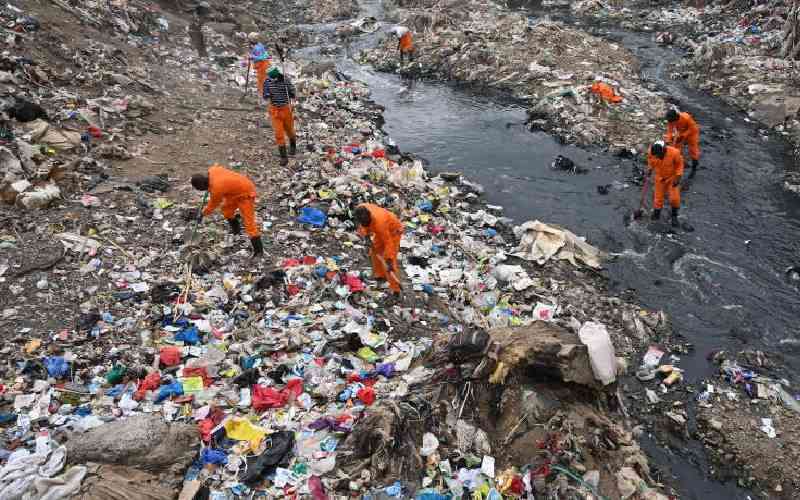×
The Standard e-Paper
Stay Informed, Even Offline

Members of a volunteer group cleans up Ngong river. [Denish Ochieng, Standard]
As Nairobi River snakes its way from Ondiri Swamp in Kikuyu, where it originates, its bubbles of life are choked by pollutants.